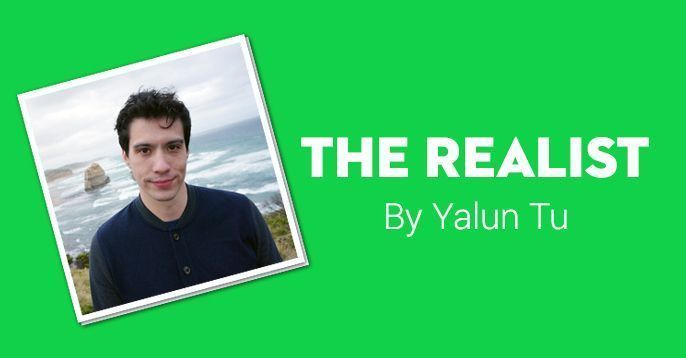Maybe it was the holidays and you missed it, but an oft-circulated story was this Vice article about how people who post silly inspirational quotes on Facebook/Instagram/and other social media are actually stupid.
As any other person who makes a living opining on how others live their lives, I had a hot take on this but wanted to take some time to offer a thoughtful response, or at least one as modest a proposal as Jonathan Swift may have made.
First off, I do think that simple tests can be a good measure of somebody’s intelligence. Two quick examples:
1. Do you think the movie Inception is a very deep movie? If you answered “yes,” you are an idiot.
2. Have you ever posted or agreed with this misattributed Marilyn Monroe “quote”: “If you can’t handle me at my worst, you don’t deserve me at my best”? If you answered “yes,” you are crazy and I hope your partner realises this and breaks up with you in the near term.
I wonder, though, if we can generalise that people posting inspirational quotes are dumb or at least dumber than your average Facebook poster.
The first thing to note is that the study (University of Waterloo? Is that a good place? Are 300 people a large enough sample size?) used a website to create random statements that sounded profound and asked people to rate them on a 1-5 scale of profoundness along with other statements.
Those who couldn’t detect the random ones were deemed to be “lower in intelligence, less likely to engage in reflective thinking, and more likely to hold conspiratorial or paranormal beliefs”. That makes sense: if you think random big words put together are extremely meaningful you’re probably less bright than say, Melvis.
However, the way this information was presented or at least implied by secondary sources and then tertiary sources (the ones I first saw on my social media feeds) like this one from Elite Daily and this one from Next Shark was that people who post inspirational quotes are stupid, not that people who post randomly-generated-inspirational quotes (and how often does that happen) are stupid. That’s a perfect little microcosm of the dangers of internet misinformation:
1. A small study proves a simple, silly point: people who have poor reading comprehension are less intelligent than those who do not have poor reading comprehension.
2. This information is spread by clickbait-type sites around.
3. People post the links to clickbait sites with their own commentary on how they, the ones who do not post inspirational quotes, are in fact smart.
What a fun, weird, world we live in. When we post things and search for things that confirm our personal biases and help elevate us while lowering others (e.g. my two examples above of things that I don’t like or people I don’t date) we continue to get a worldview filtered to our side.
It’s part of the reason I think that Republicans and Democrats in the US are so far apart or the Chinese Communist Party and Hong Kong don’t meet in the middle – a lack of empathy and a reinforcement of one’s own worldview.
I’ve spent a lot of time at dinner parties explaining to everybody how stupid Donald Trump is when the real question should be, why are people attracted to such an individual and what can I do to help change their minds? CY Leung isn’t some incompetent fool who’s just wandering around aimlessly yelling at plants (though he might do that); he’s a smart fellow with a series of restrictions on him who knows how to stay in power and also might be a bit foolish.
I for one, would love to understand the real push-and-pull factors as an official in Hong Kong while also being an authoritative father figure, instead of just laughing at his silly daughter and the foibles he gets into.
To the original point, I wonder if being thoughtful or skeptical or inured to inspirational quotes makes us smarter. In terms of ability to score well on a standardised test, probably. Perhaps even average educational background and earning potential. But is it actually “smarter” to think these things are dull and stupid, or to believe in earnestness and buy into obnoxious comments like, “don’t wait for the perfect moment, take the moment and make it perfect”?
You’ll probably be happier with simpler things and finding happiness, or even better – meaning – might just be what it’s all about. I always remember reading the John Stuart Mill Quote on Utilitarianism:
It is better to be a human being dissatisfied than a pig satisfied; better to be Socrates dissatisfied than a fool satisfied. And if the fool, or the pig, are a different opinion, it is because they only know their own side of the question.
Personally, it might be better to be a whistling happy fool than sit in a jail cell and take hemlock shooters. So I hope you’re the change you want to see in the world and you at least read the secondary sources, if not the primary ones.
About the Realist: Yalun Tu is a writer based in Hong Kong. He wrote The Straight Man column for HK Magazine, and TV scripts for HBO Asia, Channel V, and Fox Movies Premium. You can contact him at yalun.tu@gmail.com or @yaluntu on Twitter.





Reader Interactions